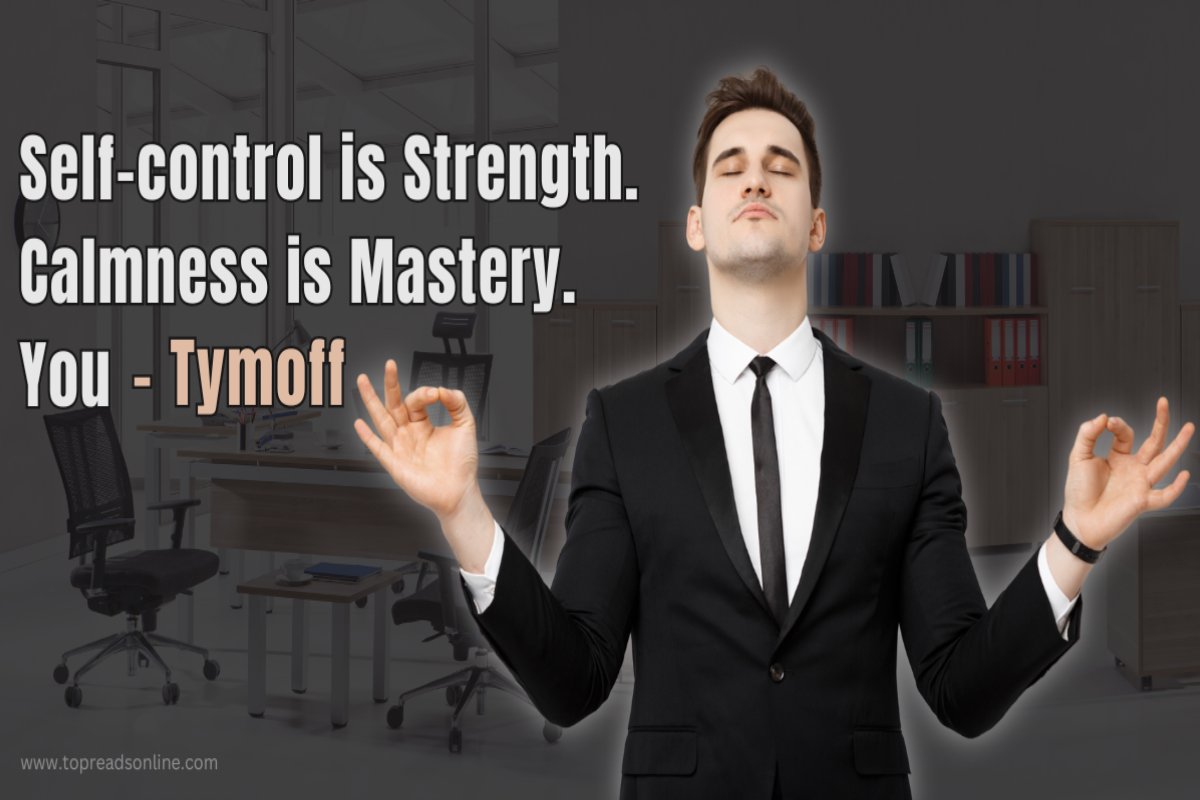Self-control is strength.calmness is mastery. but you – tymoff, among the neon chaos of nowadays, it is a rule of thumb that this world is conditioned by only disorder, this calmness is a really rare ability to accept any situation and face it with a clear mind.</span> These is the philosophy of Tymoff , where the greatest meaning of one’s self and internal peace is depicted in a chaotic sea of existence as the light to darkness manifestation In this exploration, we move towards the dynamics between willpower and tranquility, unwrapping the pedigree of these values which has the capacity to create a life that is resilient and goal oriented.</span>
Table of Contents
The Foundations of Self-Control: Harnessing Inner Strength
Self-restraint is not only in the form of indoor confinement but also a manifestation of inner power by not obeying one’s compulsion and urgings. In an era of impact operators and temptations, that is, an era of development, self-control is more coveted than perhaps any other metaphorical tool. Tymoff comprehends that the will towards life is not in the suppression of desires but in working through them via proper arenas.
There is oftentimes a common feature to self-control, which is the management of emotions. Emotions are like unstable water, except they draw their source from the most hidden depths of the ocean, an unfathomable absolute black. Tymoff tells us about this crucial part as to immerse into emotions and consider them as a rough guide to tame over them. Eventually, we no longer allow our emotions to control us. Instead, we navigate through them with ease and grace, which in turn leads to the development of our resilience when things go wrong instead of breaking and falling apart.
Moreover, self-control extends beyond the realm of emotions to encompass habits and impulses. Tymoff emphasizes the importance of cultivating habits that align with our goals and values. By exercising restraint over impulsive behaviors, we pave the way for the cultivation of virtues that lead to lasting success and fulfillment.
Calmness as the Art of Mastery: A Tranquil Mind in Turbulent Times
At times, the glamorous side may supervene the calmness, while fulfilling the desires and pursuing the objectives. You may like: But Tymoff considers that the real mastery is possessed by the fully pacified soul instead of by the struggle where one tries to show that it is possible to be calm within a troubled mind. The human mind has the capacity to experience tranquility and calmness as a form of self-expression. It need not only be a passive reaction, but it can also be an art by refining and honing volunteer skills .
Primarily, the inner peace is the man forever ethical and objective when facing difficulties. Through her poem, Tymoff tells us about the quiet mirror, just like in a motionless lake the beauty reflects around, the mind is just like that and may deal with the bumpy ways as long as it keeps its inherent peace. It is this absolute control over the mind by which people reassurely deal with the problems, making their judgment as stable as a rock instead of getting swept away with the anxiety of the situation.
self-control is strength. calmness is mastery. you – tymoff
The contemporary times where life can be stressful and full of uncertainty rather underline the merit of calmness in people`s lives. Tymoff stands for the implementation of mindfulness techniques and meditation into the daily regimen for the population. In addition to that, these styles fuel self-peace that is conducive to improving cognitive skills in turn. Support the ability to survive and make decisions in complex situations and times.ce cognitive abilities, allowing individuals to navigate compound situations with clarity and focus.
Furthermore, calmness serves as a balm for interpersonal relationships. In the crucible of conflicts and misunderstandings, a calm demeanor acts as a bridge, fostering effective communication and understanding. Tymoff teaches us that mastering the art of calmness in our interactions with others is a profound expression of emotional intelligence and empathy.

The Synthesis of Strength and Mastery: You – Tymoff
Tymoff posits that the synthesis of self-control. And calmness leads to a state of being that transcends the ordinary—a state embodied by the phrase “You – Tymoff.” This synthesis represents the harmonious integration of inner strength and mastery over the mind. Propelling individuals toward a life of purpose and fulfillment.
The journey toward “You – Tymoff” begins with the recognition that self-control. And calmness are not isolated virtues but interconnected facets of personal development. Such people who have control over their selves are the ones who must really think and focus so as to achieve a tranquil nature. On the other hand, such a mind facilitates insulated mental self-control. Fostering a reciprocal relationship that makes the person more resilient to the typhoons of life.
One of the cornerstones of “You – Tymoff”, which is resilience building, remains the fundamental principle. Through the combination of the two, the presence of optimism, confidence. And dwelling on the past fade as individuals surmount difficulties with a refreshed zeal. Tymoff highlights that being resilient is the courage to face and confront the difficulties in life. But not to escape it with a serene and indestructible attitude of conqueror.
Conclusion: self-control is strength. calmness is mastery. you – tymoff
In combination with every other component of life, the stones of self-control. And calmness form an account for strength and mastery. These are stretching through life. In Socrates’s teaching his essence is to cultivate people’s capacity to view life. As an organic synthesis of these virtues through the process of embodying and living by these virtues.
As we navigate the complexities of our modern world, let us heed the wisdom of Tymoff. Recognizing that true strength is found in the disciplined heart and mastery is achieved through the tranquil mind. In the synthesis of self-control and calmness, we discover the transformative power of “You – Tymoff.” A state of being that transcends the ordinary and propels us toward a life of enduring significance. Hence, It is all about self-control is strength. calmness is mastery. you – tymoff.

